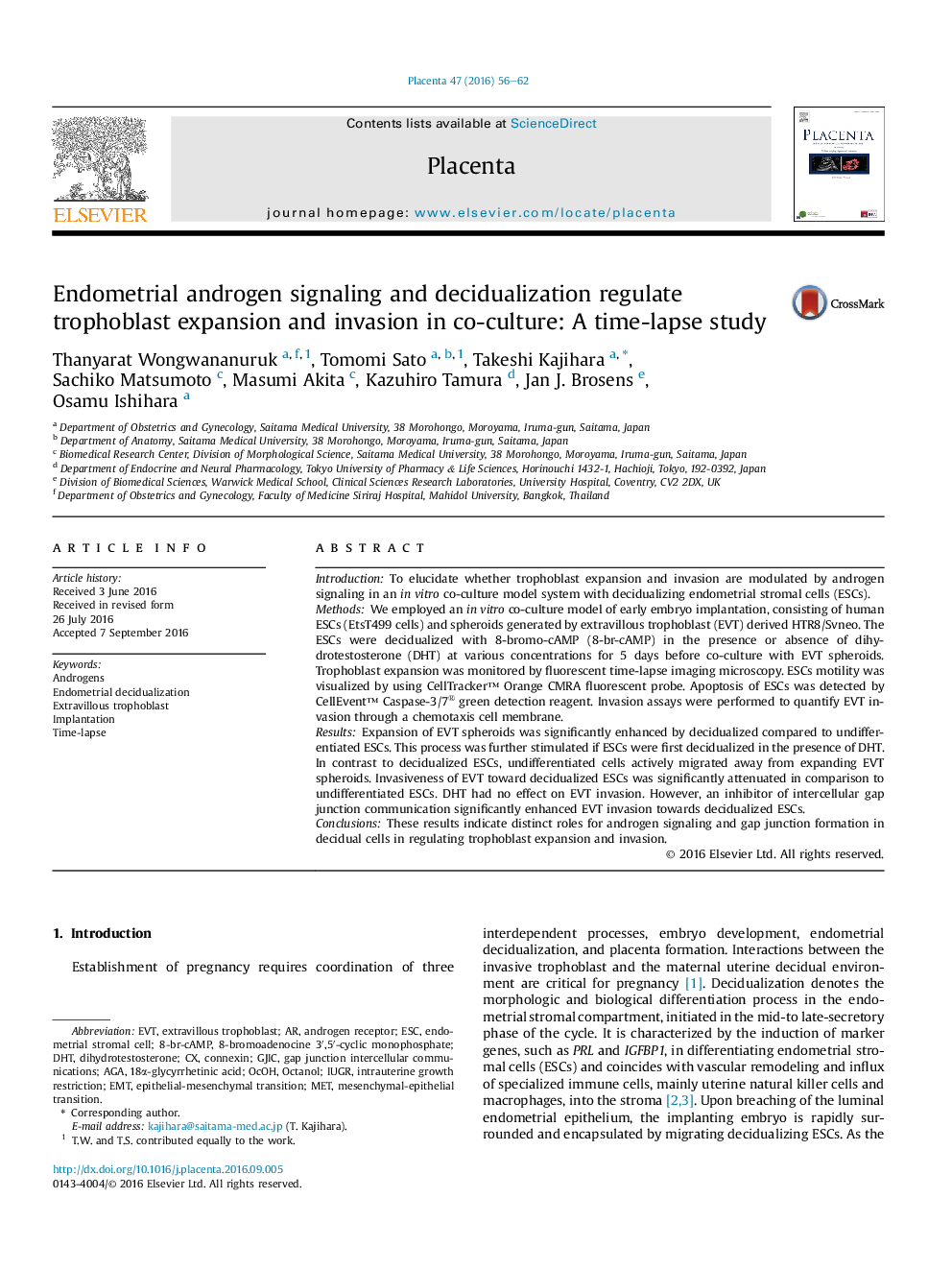| Article ID | Journal | Published Year | Pages | File Type |
|---|---|---|---|---|
| 5894102 | Placenta | 2016 | 7 Pages |
IntroductionTo elucidate whether trophoblast expansion and invasion are modulated by androgen signaling in an in vitro co-culture model system with decidualizing endometrial stromal cells (ESCs).MethodsWe employed an in vitro co-culture model of early embryo implantation, consisting of human ESCs (EtsT499 cells) and spheroids generated by extravillous trophoblast (EVT) derived HTR8/Svneo. The ESCs were decidualized with 8-bromo-cAMP (8-br-cAMP) in the presence or absence of dihydrotestosterone (DHT) at various concentrations for 5 days before co-culture with EVT spheroids. Trophoblast expansion was monitored by fluorescent time-lapse imaging microscopy. ESCs motility was visualized by using CellTracker⢠Orange CMRA fluorescent probe. Apoptosis of ESCs was detected by CellEvent⢠Caspase-3/7® green detection reagent. Invasion assays were performed to quantify EVT invasion through a chemotaxis cell membrane.ResultsExpansion of EVT spheroids was significantly enhanced by decidualized compared to undifferentiated ESCs. This process was further stimulated if ESCs were first decidualized in the presence of DHT. In contrast to decidualized ESCs, undifferentiated cells actively migrated away from expanding EVT spheroids. Invasiveness of EVT toward decidualized ESCs was significantly attenuated in comparison to undifferentiated ESCs. DHT had no effect on EVT invasion. However, an inhibitor of intercellular gap junction communication significantly enhanced EVT invasion towards decidualized ESCs.ConclusionsThese results indicate distinct roles for androgen signaling and gap junction formation in decidual cells in regulating trophoblast expansion and invasion.
